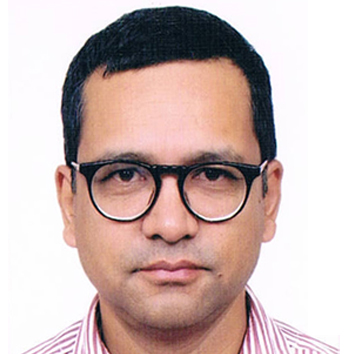Columns
On the accountability of academic NGOs
Credibility cannot be earned by simply highlighting the legality of academic NGOs as civil society associations.
Pratyoush Onta
Nepal’s research landscape includes a variety of non-governmental organisations that I like to call academic NGOs. They come in various sizes and shapes and work on multiple fronts: Doing research and providing various types of research training. They run labs and libraries and organise conferences, seminars and workshops. Their works also include publishing reports, bibliographies, newsletters, journals, research and policy briefs, and books of various types.
The research these organisations conduct also varies in type. Some engage in basic research in the sciences or social sciences, while others focus on policy research and interventions. Some do commissioned research (also known as consultancies). Others respond to public calls for bids but do not do commissioned research. Still others design their own research projects and then search for funding to carry them out. Since sources of funding available for such entities are rather scarce within the country, such funds, when these organisations are successful, are often sourced from international foundations and donor agencies.
Academic NGOs are important to Nepal’s higher education and research landscape. They will continue to remain so in the foreseeable future.
Regulatory rigmarole
Given that Nepal’s laws do not differentiate between academic NGOs and other service-providing NGOs, the former have to comply with the same set of regulations that have been put in place for civil society organisations that mostly deliver bikas in the form of tangible materials and services. All NGOs have to renew their registration annually at the Chief District Office in the district where they are registered. If they access non-Nepali sources of funds, they also have to register at the Social Welfare Council (SWC) and get prior approval for each funded project by filling out elaborate applications.
SWC is a legacy of how the Panchayat regime governed a small number of civil society organisations prior to 1990. In recent years, its approval process has involved getting prior permission from the local governments (mostly metropolitan offices) of the areas where the project will be implemented before the application is even registered at the SWC. All this involves many weeks of administrative work that frankly detracts from the main knowledge production and distribution work of the academic NGOs.
Over the years, many of us have tried to point out the absurdities of such regulations. To give you one example, if a research project involves surveys in 30 local government areas, the concerned academic NGO is expected to get approval from all such entities. There cannot be a good justification for such an approval regime if we are really committed to the ideal of freedom of thought and expression enshrined in the country’s constitution. To give a second example, until recently, the guidelines of SWC used to suggest that project budgets should be spent mostly on “hardware” (also known as tangible bikas items) and not “software” (namely, salary for researchers). In a typical research project, the heaviest expense would be the remuneration for researchers and their associates. In other words, research happens by investing on the “software”. Thankfully, this absurd rule has been relaxed for research projects.
Multiple-constituency accountability
The right to set the research agenda is synonymous with the fundamental right to freedom of thought and expression in any loktantrik polity. Work by academic NGOs is built upon two constitutionally guaranteed fundamental freedoms: The right to freedom of thought and expression and the right to organise. Organising research through academic NGOs is just a joint execution of these two rights as mentioned in our constitution.
Does that mean academic NGOs should not be accountable to anybody? Sure they do. Knowledge production is a service just like the construction of health clinics or school buildings. However, there is a major difference. Since much of what happens during knowledge production and distribution cannot be shown in a tangible way, it is much harder to publicly show the results of this particular service. In this context, as I pointed out in a 2011 article published in the journal Dhaulagiri Journal of Sociology and Anthropology (volume 5), thinking about the accountability of academic NGOs in terms of multiple constituencies is useful.
First, academic NGOs are accountable to their members, their funders and the Government of Nepal for the money they receive for any specific research project or general institutional support. This is accountability in monetary terms and the hisab has to be accurate. However, the money approval regime has to be made much more flexible. The requirement to get prior approval for each project from local governments and, in the case of foreign funding, from the SWC, should be removed. Other laws governing the transfer of money from outside of Nepal should be adequate to cover the transactions involving foreign funds. These NGOs can be required to make their annual audited reports (passed by their general bodies) public. They can also be required to submit a copy of such reports to the registering entity of the Government of Nepal each year but the need for their annual renewal should be done away with.
Second, academic NGOs are chiefly accountable to their peers in similar organisations, other types of research centres and universities for the quality and integrity of their research. These peers are the ones who are most qualified to evaluate if the research output of these organisations is intellectually sound and methodologically competent and adds to our general repository of knowledge. Traditions of research and scholarship have been built around this notion of peer accountability inside and outside universities for a long time, and they should also apply to academic NGOs. This means the sham of government bureaucrats and their consultants doing mid-term and full-term evaluations of research projects and their outputs should be stopped.
Finally, academic NGOs are also responsible to the general public and its unelected representatives (e.g., journalists) for all aspects of the research operation, including ethical considerations even when there are no formally established protocols for the same. This means they should be open to and encourage all forms of public scrutiny as is appropriate for all public institutions in a loktantrik polity.
As I emphasised in my 2011 article, being accountable to these various constituencies is essential if academic NGOs want to be seen as credible players in the academic landscape, both nationally and internationally. Credibility is not earned simply by highlighting the legality of academic NGOs as civil society associations. It can only be earned with a track record established through a consistent commitment to the process of knowledge production and the quality of the end products—books, journals, policy papers and the like—and through the following of the accountability regimes described here.




 20.9°C Kathmandu
20.9°C Kathmandu















